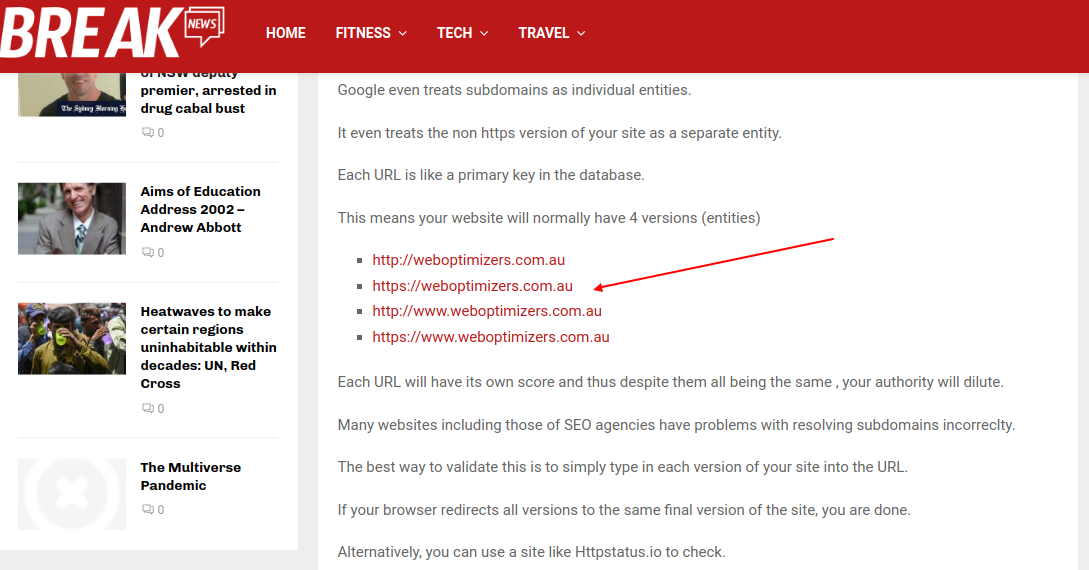If you have noticed your Google rankings begin to slide recently, you may be the victim of a negative SEO attack.
So what is negative SEO and how does it affect your bottom line?
Simply put, it is any malicious attack to destroy your domain authoritativeness intentionally.
Officially, Google disavows any existence of negative SEO, stating that it is impossible to execute and is often ignored by Google systems.
Negative search engine optimisation tactics are not technically black hat.
Black hat techniques are primarily identified by whether or not they’re effective without regard to a search engine’s terms of service. Also black hat techniques are generally deployed by people that own the site.
Negative search engine attacks are also technically not the work of a hacker, whose primary goal is to gain unauthorized access to your website and destroy your information.
Since the user is not gaining entry into the backend of your site – merely destroying it from the outside – negative search engine attacks are also not strictly defined as hacking either.
So what is it? In a word, malicious.
Whether or not it’s illegal is still up for debate, but if you believe you’ve been the target of an attack, it can be difficult to fight back, mainly because a user would have to be highly motivated and incredibly resourceful to launch an attack like that in the first place.
Scraping Content
Google frowns heavily upon using any duplicate content, and the latest Panda update is designed, in part, to protect against hundreds or even thousands of web pages that have the same type of information spread across them.
Doing so will dilute your primary authority for that content in the first place, which is why it’s one of the most favored attacks for people with an axe to grind.
“Scraping” content off of your site involves taking all of your resources and copying it verbatim to other sites across the internet; since Google will only pick one version of this content to rank if it believes the competitors content is the primary source, it will rank that site and devalue your own.

There are a few tools you can use to keep this from happening.
One of the best is Copyscape, which allows you to enter the URL of any content you believe has been duplicated and find the offending websites.
You can also create alerts for your content through a service like Awario, which will allow you to know when other sites link to your material.
If you find content has been duplicated, contact the webmaster and ask them to remove it. If they won’t, report them to Google using an infringement report.
Spammy Link Farms
Originally, link farms were designed to actually increase the ranking of a specific site by organising a bunch of high-profile sites together and then offering high-quality links to other people’s sites from their collective authority.
This network is called a private blog network, or PBN for short.
Eventually, Google discovered how effective link farms could be and actively took steps to stop them.
If Google detects that you have received a backlink to a so-called link farm, they will automatically assume that you’re involved in an ethically ambiguous plan to increase your search rankings outside the proper channels. This will be the case whether the backlink is by you or from someone else.
As a consequence, your site will be penalised in the process.
To attack your site, users may then submit your info to several PBN’s that they know of to try and penalise your site, knocking your SERP down several pages overnight.
It’s happened before: WP Bacon, a well-known and established website, fell 50 spots for some of their primary target keywords before they realised what was happening. They were able to recover, but not without some hard work and a little patience.
Negative Review Blitz
If you’re into local search engine optimisation, you will want to pay attention to this one.
As you most likely know, local search engine optimisation is key for developing a strong geographic ranking for your main keywords and one of the most critical factors in that ranking are your reviews.
If people have left a lot of good ones, it will only help your business, but if you receive several bad ones in a row, Google will penalise your rankings accordingly.
Negative review blitzes happen when one person or a group of your competitors bombard your reviews with one-star or negative reviews, saying things like “awful service” or “would never return here” in the process. Since it’s so easy to do something like this, negative review blitzes are usually the first form of attack from your competitors.
To fix it, go directly to Google maps and identify your business from a list of search results.
Navigate over to review summary and search through the individual reviews until you find the ones that are questionable and flag them.
Be sure you’re choosing to flag spammy reviews and not just reviews you disagree with, or else Google won’t consider taking them down, believing you to be hiding the truth about your business instead.
While the previous four negative search engine attacks are the result of off-page search engine optimisation, there are many different ways that competitors can affect your on-page content too.
Contrarily to off-page, someone who is engaged in this type of manipulation can be regarded as a hacker, since this involves going into the backend of your site and manipulating the HTML, among other things.
Site Redirects
If you’ve got a site that enjoys a good amount of domain authority, one of the things a user may choose to do is redirect your website to either their own or a malicious site that Google deems as low quality.
Whether the goal is to increase their rankings or decrease yours, the response from Google is the same: a swift and immediate penalty.
Be sure to audit your website regularly to monitor any changes that may have been made to your site, including any potential redirects.
You’ll want to do this often to uncover them before Google does, or else you could see a hit that will be hard to recover from.
My Site Has Been Compromised By Negative SEO. What Do I Do Now?
Once you’ve gotten over the initial panic at noticing your SERPs begin to go down, the first thing you have to do is determine whether or not the change is the result of an external force or your own actions, whether intentional or otherwise.
If you’ve gone through your site and can’t make out what’s causing the change, the next step is to do a full audit over your site and check to see how the search engines treat it.
Don’t automatically assume that any change in rankings is the result of a deliberate attack; check your own actions to see if there are any explanations first.
